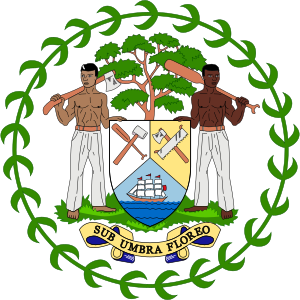 Image via Wikipedia
Image via WikipediaA court case will start this week in the small Central American nation of Belize challenging that country's criminalisation of homosexuality. The case is supported by a new British-based group which hopes to challenge such laws throughout the world.
The Human Dignity Trust (HDT) was established by a high powered group, which includes the former attorney general of India; the former secretary general of the Commonwealth; Lord Woolf, former lord chief justice of England and Wales; and a former judge at the Intra-American court of human rights.
It says:
"Criminalisation causes misery to all of those affected, compromising people's identity through illegality. It also reduces human beings to their sexual acts."
"We hope to bring approximately five to 10 cases globally each year. Where necessary we will fund cases. In the event of a prosecution, we can assist lawyers in preparing a defence challenging those laws. If appropriate, we may bring cases in our own name."Most such laws are a legacy of British colonial rule. Countries formerly ruled by Belgium, Portugal or France generally do not have such laws.
The former British attorney general, Lord Goldsmith, will be among the team of lawyers taking on the constitutionality of section 53 of Belize's criminal code, which says that: "Every person who has carnal intercourse against the order of nature with any person or animal shall be liable to imprisonment for 10 years."
The case has been brought by United Belize Advocacy Movement (UNIBAM) and its Executive President Caleb Orozco.
Local churches have united in their opposition to decriminalisation and will be present at the hearings. Amongst the evidence they say they will present will be that homosexuality can be "cured". They will also tout the 'foreign influence' line as well as the 'victimhood' line flowing from US evangelical objections to LGBT human rights, saying:
"In every country that has granted a new 'right' to homosexual behaviour, activists have promoted and steadily expanded this 'right' to trump universally recognised rights to religious freedom and expression."Legal moves challenging criminalisation are already underway in Botswana and are being discussed in Kenya. HDT say they will next challenge sodomy laws in Northern Cyprus and Jamaica.
The legal challenge is on the basis of international agreements which states are party to and, according to the Trust's Chief Executive, Jonathan Cooper, a human rights barrister, mean that criminalising homosexuality is illegal.
"We hope there will be a domino effect eventually," Cooper added, "with countries recognising [that they will lose the test cases] and saying 'Why don't we just decriminalise?'"Cooper told The Guardian that the Trust's patrons "are not pursuing this as part of a lesbian and gay agenda. It's an international rights law agenda."
The criminalisation laws were an issue at the recent Commonwealth Heads of Government meeting with the Commonwealth appointed Eminent Persons Group cited their abolition as a key recommendation in an extensive Commonwealth reform document.
At a regional consultation convened by the Caribbean Vulnerable Communities Coalition (CVC) in Montego Bay, Jamaica 28 August under the PANCAP Global Fund Project, leaders from more than 20 Caribbean organizations representing the LGBT community and other human rights entities unanimously voted to support their Belizean counterparts in the legal challenge.
Edited to add: Veteran Caribbean activist Colin Robinson of the Trinidad-based Coalition for Inclusion of Sexual Orientation (CAISO) has been highly critical of the HDT role with the case, pointing out that they have not developed it and are not representing the plaintiff.
He said:
"The case was the result of methodical strategic assessment done within the region by Caribbean lawyers and was supposed to be about Caribbean advocates using a Caribbean constitution and Caribbean postcolonial frameworks to expand the enjoyment of liberty and justice in a way that builds on a very Caribbean notion of freedom. The Trust's intervention turned the case into powerful alien gay interests using money and international law to leverage outcomes against the will of the Belizean people. And in my view it will set back the cause of building ownership of GLBT rights and related litigation for years. And now, they are deliberately claiming the case as the kickoff of their campaign, without a mention of the lawyers whose work the case in fact is."Video: Belizean Prime Minister Dean Barrow comments on the government's position regarding UNIBAM lawsuit to legalise homosexuality in Belize.











 Join our page
Join our page

